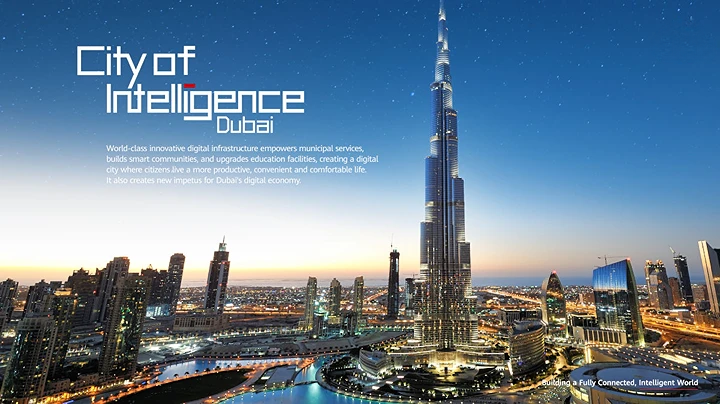Table of Contents
Introduction
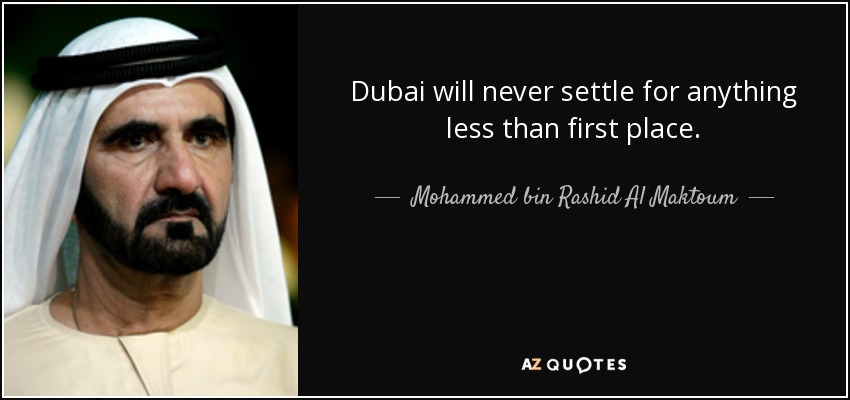
Dubai's Strategic Approach to Its Vision
Dubai’s Smart City Vision: Maktoum’s vision for a smart city
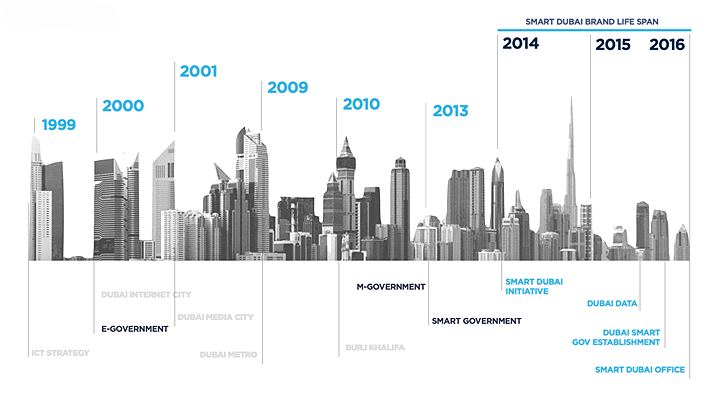
Sheikh Mohammed bin Rashid Al Maktoum’s vision for Dubai is to transform it into the happiest city on Earth through smart technology.
It aspires to make Dubai a liveable, resilient, globally competitive smart city.
Focus Areas:
- Sustainability: Emphasize green energy and efficient resource use.
- Efficiency: Streamline urban operations with innovative solutions.
- Innovation: Foster a culture of continuous technological advancement.
Dubai Strategic Plan 2021: Dubai Smart City Strategy
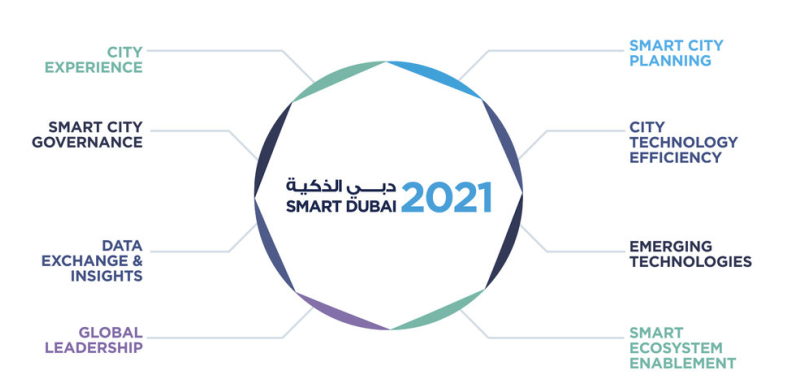
Dubai Plan 2021 envisions a city of happy, creative, and empowered people, living in an inclusive society with a competitive economy and pioneering government.
It aims for sustainability, smart infrastructure, and a high standard of living.The Dubai Smart City Strategy builds on this, focusing on six sectors:
- transportation,
- infrastructure,
- communications,
- economic services,
- urban planning, and
- electricity, to transform 1,000 government services into smart solutions.
Dubai Urban Master Plan for 2024
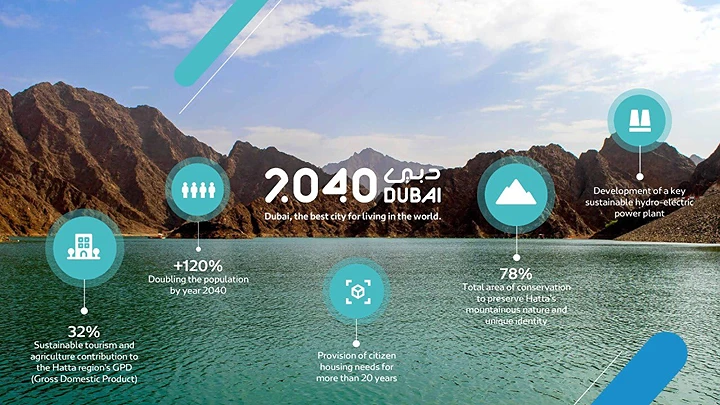
- The Dubai 2040 Urban Master Plan aims to consistently execute Dubai’s plans and strategies, prioritizing the well-being, happiness, prosperity, and stability of its people
- This people-centric plan focuses on continuous progress by drawing inspiration from global best practices while aligning with the community’s needs, ensuring a sustainable future
- The launch of Dubai 2040 Urban Master Plan coincides with the Year of the 50th and aligns with its objectives
- The plan provides a comprehensive roadmap for sustainable urban development, focusing on enhancing people’s quality of life over the next 20 years
Technological Innovations
Internet of Things (IoT) in urban management
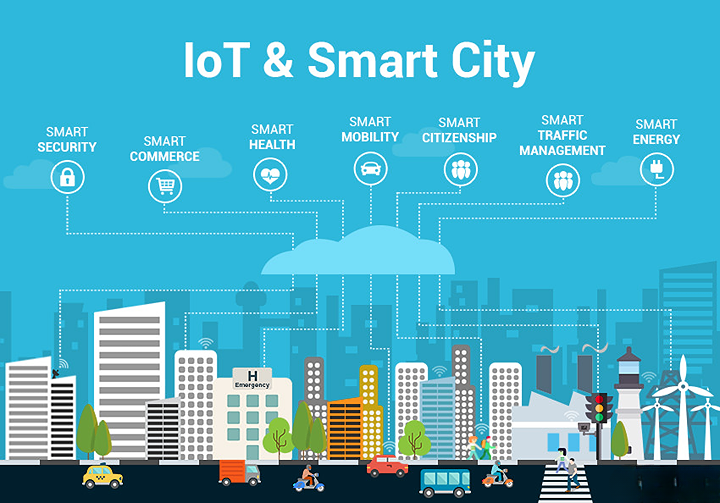
- Enhances urban services like waste collection, water management, and public transport.
- Uses real-time data from IoT sensors to optimize resource use.
- Improves traffic management through smart traffic systems.
- Supports Dubai’s goal of becoming a brilliant city.
Artificial Intelligence (AI)
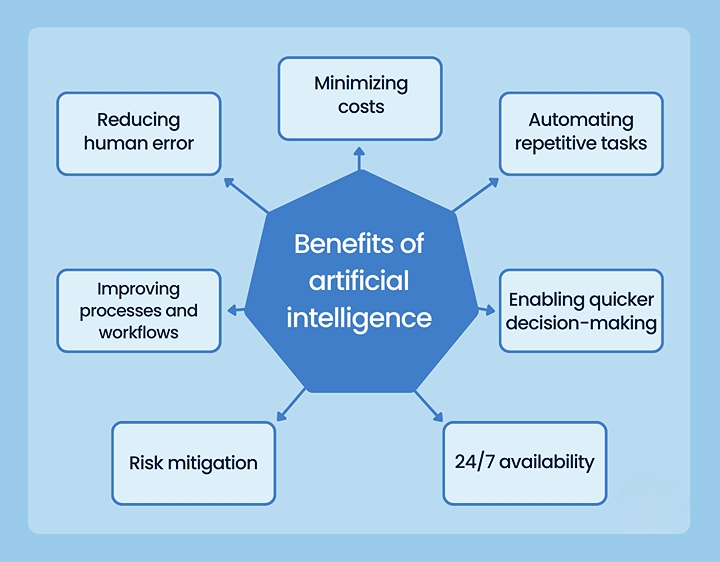
- Streamlines government operations for faster public services.
- Enhances traffic management and public transit routes.
- AI-driven surveillance systems improve public safety.
- Demonstrates Dubai’s commitment to leveraging AI for a smarter city.
Government Services Streamlined
Digital Dubai has launched over 130 initiatives in partnership with government and private sector entities. This includes services related to utilities, health, education, security, and business, all accessible through a single platform. The aim is to make government services more efficient, transparent, and user-friendly.
One notable example is the Dubai Smart Police Station, which operates without human interaction and offers 27 smart key services in 6 different languages, marking the future of policing.
Additionally, more than 90% of Dubai’s Government services are now available online, showcasing the city’s commitment to digital transformation
Dubai Blockchain Strategy
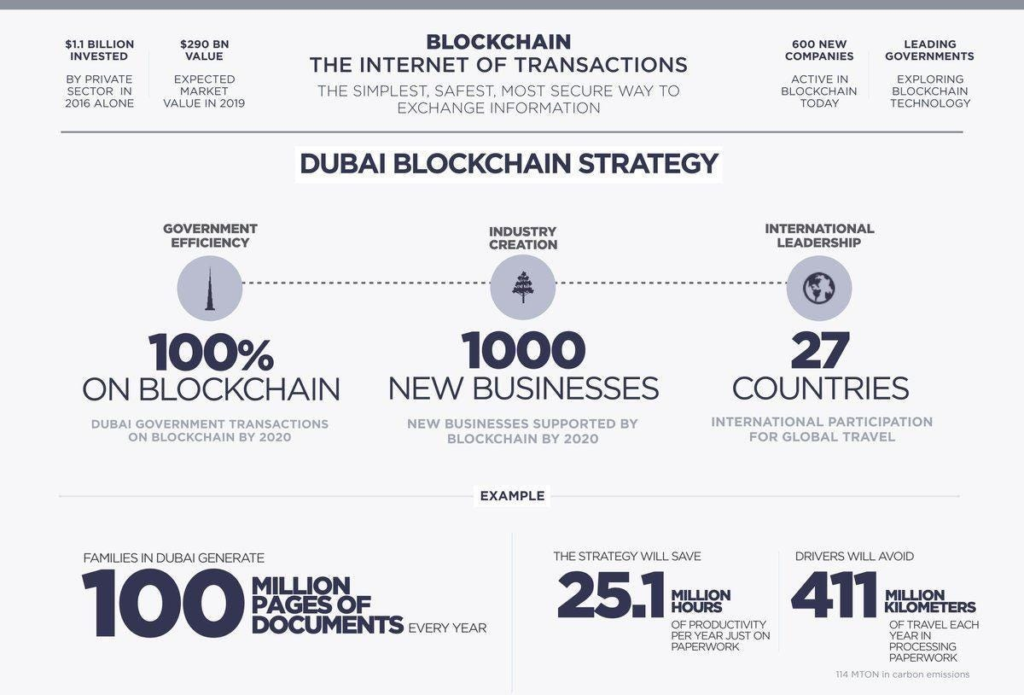
- Positioned Dubai as a global leader in blockchain by 2021.
- Focuses on government efficiency, industry creation, and international leadership.
- Implements blockchain across all government transactions.
- Encourages blockchain innovation in various industries.
Happiness Agenda
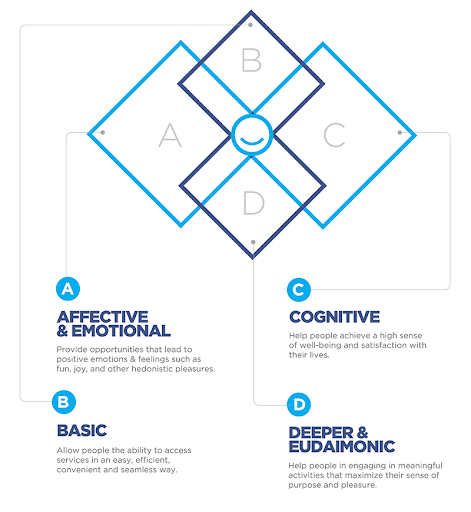
- Seeks to make Dubai the happiest city in the world.
- Measures happiness levels to inform policy decisions.
- Includes community engagement, mental health support, and enhanced public spaces.
- Prioritizes residents’ well-being and quality of life.
Dubai Paperless Strategy
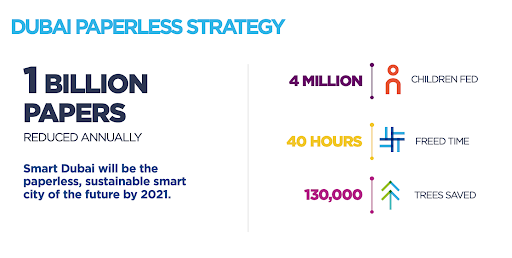
Smart Infrastructure
Smart Buildings
The construction sector in Dubai is rapidly embracing smart technologies. From the iconic Burj Khalifa to the innovative Museum of the Future, Dubai’s skyline is dotted with smart buildings that incorporate advanced technologies for energy efficiency, security, and user comfort.
These buildings are equipped with sensors and automated systems that monitor and manage various functions, from lighting and climate control to security and maintenance.
- Eco-friendly: Utilize sustainable materials and renewable energy.
- Automated systems: Control lighting, temperature, and security.
Smart Gates at Dubai International Airport (DXB)
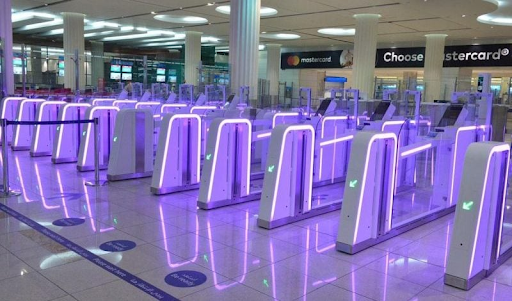
Smart Transportation
A cornerstone of Dubai’s smart city infrastructure is its intelligent transportation systems. The Roads and Transport Authority (RTA) has implemented numerous smart technologies to improve the efficiency, safety, and convenience of transportation in the city. One notable example is the Dubai Metro, which is one of the most advanced and automated rail systems in the world. Dubai plans to invest 18 billion dirhams ($5 billion) in constructing a new metro line to enhance its public transportation system.- The new blue line will run 30 kilometers (18.6 miles) with 14 stations, connecting Dubai Creek Harbour district with International City and Dubai International Academic City
- It is scheduled to commence operations in 2029
- The Dubai Roads and Transport Authority stated that the Blue Line will link five key urban areas of Dubai – Bur Dubai/Deira, Downtown/Business Bay, Dubai Silicon Oasis, Dubai Marina/JBR, and Expo City Dubai
- These cities are at the forefront of establishing regulations for innovative transportation options, such as autonomous vehicles, electric scooters, and bicycles
- They are also preparing new governmental and public spaces to accommodate emerging mobility methods that are gaining popularity.
Smart Utilities
- Water management: Advanced systems for conservation.
- Energy management: Smart grids for optimal power distribution.
- Sustainability: Reduces environmental footprint, promotes green living
Sustainability Initiatives
Green Buildings and Urban Spaces
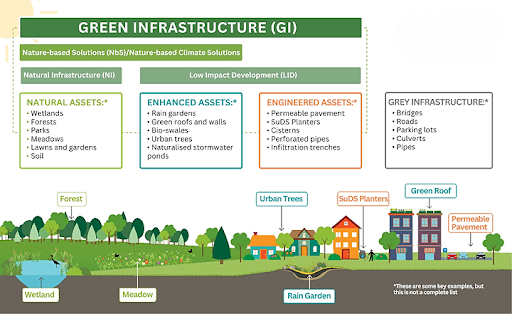
The construction of green buildings is another critical aspect of Dubai’s sustainability efforts. The Dubai Green Building Regulations and Specifications, introduced in 2014, mandate the incorporation of sustainable design principles in all new buildings.
These regulations promote energy efficiency, water conservation, and the use of eco-friendly materials, contributing to a more sustainable urban environment.
- Buildings use less water and power.
- Made with materials that don’t harm nature.
- Help make the city’s air and temperature better.
Renewable Energy
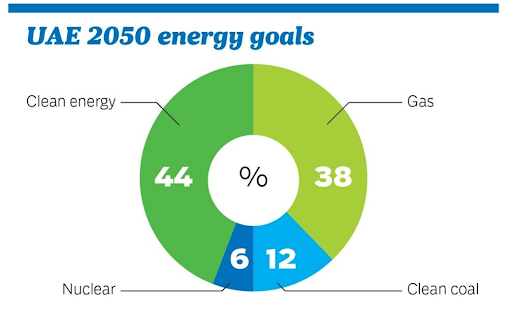
Sustainability is a key pillar of Dubai’s smart city strategy. The city has set ambitious targets for the adoption of renewable energy, with the Dubai Clean Energy Strategy 2050 aiming for 75% of Dubai’s total power output to come from clean energy sources by 2050.
The Mohammed bin Rashid Al Maktoum Solar Park, one of the largest solar parks in the world, is a testament to Dubai’s commitment to renewable energy. This project harnesses solar power to generate electricity, reducing the city’s carbon footprint and promoting sustainable development.
- Increase the use of the sun’s energy for power.
- By 2050, aim for 75% of energy from clean sources.
- Large projects to capture sunlight for electricity.
Smart Waste Management
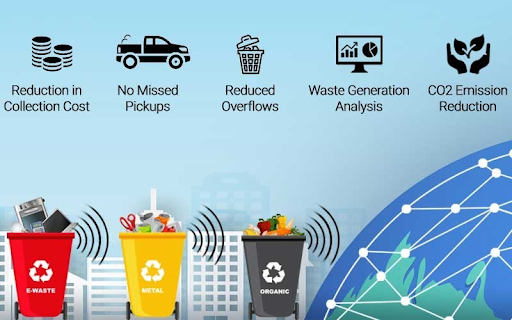
Dubai’s approach to waste management is also being transformed through smart technologies. The city has implemented smart waste bins equipped with sensors that monitor waste levels and optimize collection routes. This not only improves the efficiency of waste collection but also reduces environmental impact by minimizing fuel consumption and emissions.
Additionally, Dubai is investing in waste-to-energy projects that convert waste into electricity, further supporting its sustainability goals.
Public Services and Safety
Smart Healthcare
Healthcare in Dubai is being revolutionized through smart technologies. The Dubai Health Authority (DHA) has implemented numerous digital health initiatives, including telemedicine services, electronic health records, and smart medical devices. The Salama system, for instance, is an electronic medical record platform that integrates patient data across all DHA facilities, ensuring seamless and efficient healthcare delivery. Additionally, the Dubai Health Experience (DXH) initiative promotes medical tourism by offering comprehensive information and services to international patients seeking treatment in Dubai.- Online health services and doctor visits.
- Use of AI to find health issues faster.
- Quick and easy access to health records.
Smart Education
Education is another area where smart city technologies are making a profound impact. The Dubai Future Foundation has launched several initiatives to promote smart learning and innovation in education. The Smart Learning Program, for instance, integrates digital technologies into the curriculum, enhancing the learning experience for students. Additionally, the Dubai Institute of Design and Innovation (DIDI) offers programs that focus on the intersection of design, technology, and entrepreneurship, preparing students for the challenges of the future.- Classes and learning are done over the internet.
- Use of technology to make learning fun.
- Tools for students and teachers to connect online.
Public Safety
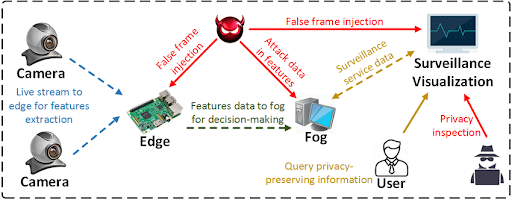
Smart city technologies have a significant impact on public safety in Dubai. The Dubai Police have adopted a range of smart solutions to enhance law enforcement and emergency response.
For example, the Smart Police Stations (SPS) offer residents access to various police services without the need for human interaction. These stations operate 24/7 and provide services such as reporting crimes, traffic incidents, and lost items, making it easier and more convenient for residents to interact with the police.
- Police use technology to keep people safe.
- Cameras and systems watch over the city.
- Fast help in emergencies using smart tech.
Economic Impact
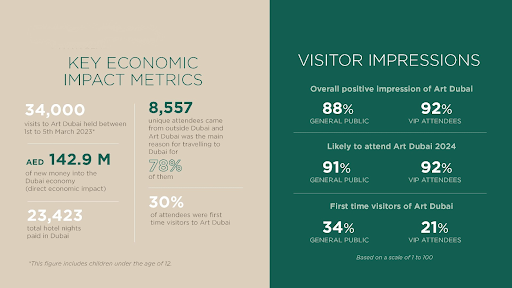
Attracting Businesses
- Dubai’s smart city initiatives create a high-tech ecosystem that attracts global businesses and startups.
- Innovative infrastructure, such as state-of-the-art connectivity, supports seamless operations for companies.
- Government incentives and business-friendly policies provide a conducive environment for business growth.
- The city’s strategic location serves as a gateway to both eastern and western markets.
Job Creation
- The tech and innovation sectors in Dubai are booming, leading to the creation of numerous new job opportunities.
- Smart city projects require a skilled workforce, fostering employment in areas like AI, IoT, and data analysis.
- Educational partnerships ensure a steady flow of talented graduates ready to join the smart city workforce.
Economic Diversification
Dubai is transitioning from an oil-based economy to a diversified, knowledge-based economy.This shift reduces economic vulnerability and ensures long-term prosperity for the city.
Dubai Integrated Energy Strategy 2030
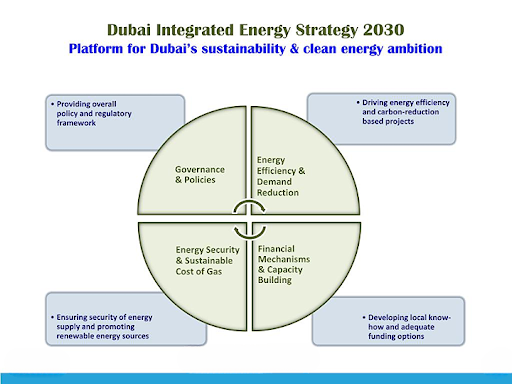
The Dubai Integrated Energy Strategy 2030 is this vision’s name, a plan so bold, it seeks to tame the sun’s flame.
By 2030, Dubai dreams of harnessing 25% of its power, ensuring the city’s energy needs are fixed.
- Sustainable Energy Mix: The inclusion of nuclear and clean coal aims for a balanced, sustainable energy portfolio.
- Green Fund Initiative: Offers loans for clean energy projects
- Skill Development: Training programs for renewable energy expertise.
- The Bigger Picture: Dubai’s model as a blueprint for others. Also, it emphasizes harmony with nature.
Silicon Park Project
- Smart City Initiative: Part of Dubai’s plan to become a smart city by 2021.
- Energy Efficiency: Achieved a 31% reduction in energy consumption since January 2016.
- Sustainable Design: Incorporates smart street solutions and building technology.
- Energy Conservation: Reduces operational costs and conserves the environment.
Benefits
- Economic Diversification: Supports UAE’s shift from natural resources to a knowledge-based economy.
- Digital Transformation: Aligns with UAE Digital Government Strategy 2025 for a digital, user-driven society.
Silicon Park exemplifies Dubai’s commitment to sustainability and innovation.
Comparison with Other Leading Smart Cities
- Top Cities: Zurich and Oslo lead the index, showcasing strong quality of life and green initiatives.
- European Dominance: Seven of the top ten cities are in Europe, reflecting advanced smart city development.
- Asian Presence: Asian cities like Singapore and Beijing also feature prominently, indicating a rise in smart technology adoption.
Upcoming Projects
- Future Urbanism Expo: A summit for sustainable city development.
- DAMAC Business Tower: Luxury properties with modern amenities.
- Blockchain Firm: Advancing blockchain technology in urban services
Long-term Vision
- Smart Dubai 2021 Strategy: Enhancing city life through technology.
- Dubai Plan 2021: Focusing on happiness, economy, and governance.
- Dubai 2040 Urban Master Plan: Prioritizing sustainable development and public spaces.
Conclusion
Dubai’s journey to becoming the ultimate smart city is a testament to its visionary leadership and innovative spirit. By embracing cutting-edge technologies and sustainable practices, Dubai is not just creating a blueprint for the future but is also enhancing the daily lives of its residents. The city’s transformation into a vibrant, efficient, and happy metropolis is a shining example of what is possible when ambition meets action. Dubai truly is the city of tomorrow, today.
Deepak Wadhwani has over 20 years experience in software/wireless technologies. He has worked with Fortune 500 companies including Intuit, ESRI, Qualcomm, Sprint, Verizon, Vodafone, Nortel, Microsoft and Oracle in over 60 countries. Deepak has worked on Internet marketing projects in San Diego, Los Angeles, Orange Country, Denver, Nashville, Kansas City, New York, San Francisco and Huntsville. Deepak has been a founder of technology Startups for one of the first Cityguides, yellow pages online and web based enterprise solutions. He is an internet marketing and technology expert & co-founder for a San Diego Internet marketing company.

